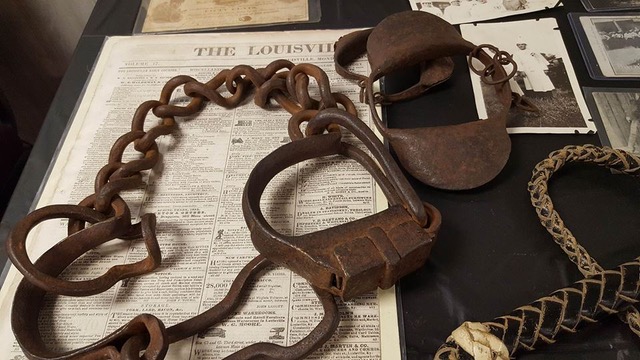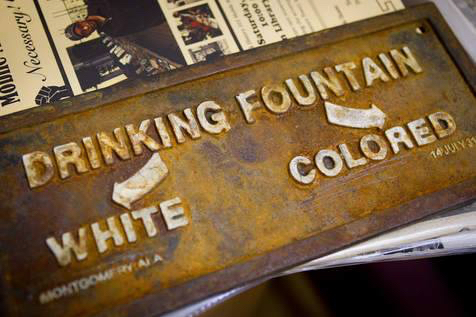Mobile museum teaches black history through artifacts
November 3, 2017
 Courtesy of Khalid El-Hakim
Courtesy of Khalid El-Hakim“How do you get students in this age to talk about controversial materials and controversial issues?” asked Khalid El-Hakim, the curator of the Black History 101 Mobile Museum. At the heart of the touring museum is this question, which El-Hakim tackles using artifacts in an educational setting. Today, he will present his collection “The Three Ms” to campus in an event sponsored by Bowdoin Student Government and African-American Society.
Inspired by his Ferris State University sociology professor David Pilgrim, who used artifacts to teach the history of Jim Crow laws, El-Hakim began collecting his own artifacts in 1991. By 1995, El-Hakim he had amassed about 500. His participation in The Million Man March provided the impetus to take his collection on the move.
“Prior to the Million Man March, I was just a collector of artifacts,” said El-Hakim. “We really didn’t have an idea of taking these artifacts outside of the classroom to educate the community, so it was really after taking a pledge at the Million Man March to go back and kind of help transform my community using these artifacts I had collected. … I guess my activism was using these artifacts to teach the community about the legacy of the black experience in America.”
El-Hakim started by showcasing his artifacts in Michigan. Eventually, he received calls from around the country and the collection grew so large it became impractical to transport in its entirety. To date, he has collected just over 7,000 artifacts.
 Courtesy of Khalid El-Hakim
Courtesy of Khalid El-Hakim“One need, especially in the field of education, is the narrative of the marginalized voices in the curriculum,” said El-Hakim. “So, if you go into your mainstream American school day, and [look] at history textbooks, you’ll find that the voices of brown and black people are, you know, missing in those textbooks. So as a supplement to those stories missing in textbooks, I use artifacts to fill in the gaps.”
El-Hakim tours the country with his museum in hopes of expanding access to black history artifacts, which also includes Ku Klux Klan memorabilia. He strives to depict an unfiltered version of history.
“Some people avoid controversial history, and that is one thing the Black History 101 Mobile Museum does not hold back from,” said El-Hakim. “These artifacts speak to a reality that happened.”
The exhibit coming to Bowdoin is no exception to the mobile museum’s display of artifacts.
“It’s focused in on Martin, Motown, and Michael,” El-Hakim said. “I am bringing about 150 artifacts with me, and some of the most interesting material in that exhibit includes documents signed by Martin Luther King, … Rosa Parks, Michael Jackson and the list goes on.”
El-Hakim hopes that learning about history will foster more constructive dialogue.
“For a history that has been completely omitted from American textbooks—or American narrative—what’s at stake is the opportunity to build better relationships among people,” he said. “If I know who you are, then I am going to respect you for who you are and what you bring to the table. If me knowing you is based upon stereotypes that [are] based upon misinformation that is based upon ideas that devalue who you are or the group that you come from, then we are going to be in a constant state of conflict.”
He hopes that museum attendees will leave with deeper insight about history and use that knowledge to address modern day issues.
“The takeaway is to have a deeper understanding of who you are, a deeper understanding of knowing history and also to look at examples of success from history where we can draw inspiration from and address some of the issues we have in society today.”

Comments
Before submitting a comment, please review our comment policy. Some key points from the policy: